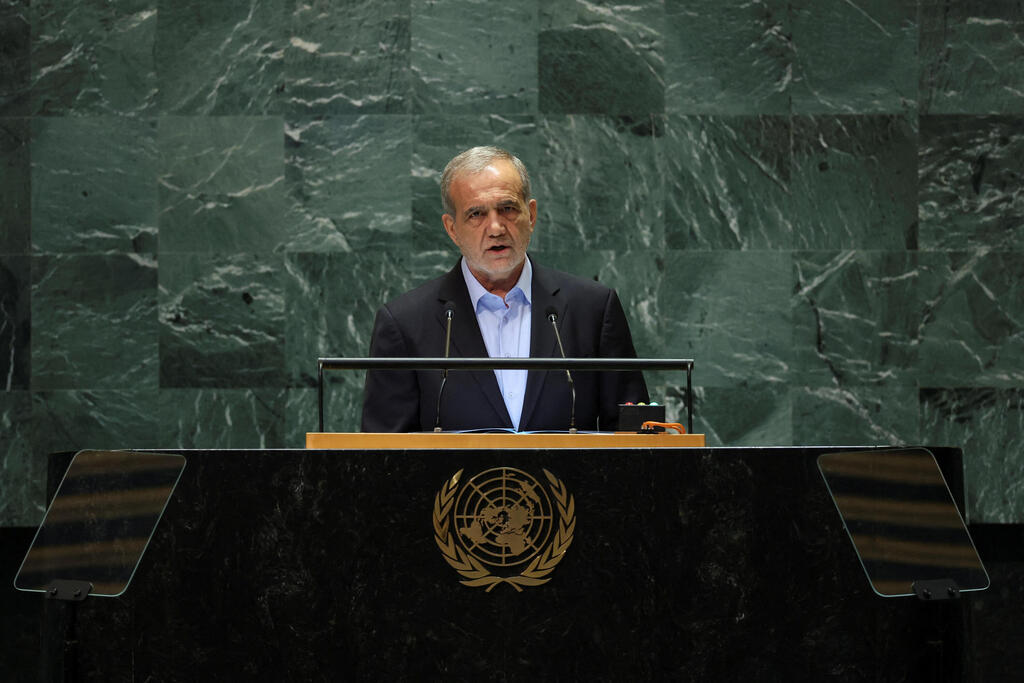Getting your Trinity Audio player ready...
The assassination of Hezbollah leader Hassan Nasrallah represents a significant strategic blow not only to the Lebanese terrorist group but also to the broader Iranian axis. This development raises pressing questions about how Iran will navigate its next steps.
As detailed in the New York Times, which cites insights from four Iranian informants, the assassination of Nasrallah –a long-standing ally of Supreme Leader Ali Khamenei – sent shockwaves of anxiety through Tehran's corridors of power. Iranian officials are reportedly pondering whether Iran itself might be Israel's subsequent target, with Khamenei – who, according to a recent Reuters report, has been relocated to a secure location – possibly in the crosshairs.
"This loss is devastating and, frankly, we have no means to recover from it," Mohammed Ali Atbani, a former vice president of Iran, told the New York Times. "We will not engage in war; that's not an option. Yet, Iran will steadfastly support armed groups in the region and continue efforts to ease tensions with the West. These objectives can be pursued concurrently," he asserted.
In the wake of Friday's attack on Hezbollah's headquarters in Beirut, Khamenei convened an emergency session of Iran's Supreme National Security Council. Iranian sources briefing the Times reported that during this meeting, held at Khamenei's residence, there was significant discord over the nature of Iran's response.
Conservative council members, including Saeed Jalili, who lost the recent presidential election to Pezeshkian, argued for a rapid move to "restore deterrence" against Israel, fearing Netanyahu might otherwise push the conflict to Tehran’s doorstep, according to a source familiar with the meeting's details.
Destruction in Beirut after Israeli strikes
(Video: Reuters)
In contrast, Pezeshkian, representing Iran's reformist camp that seeks to de-escalate tensions with the U.S. and lift sanctions, warned against a harsh and quick response, urging caution to avoid falling into what he claims is Netanyahu's trap –a bid to provoke a regional war.
Additional moderate council members expressed during the meeting that Israel has "crossed all red lines," while voicing concerns that an Iranian attack on Israel might invite a direct counterstrike against critical infrastructure within the Islamic Republic. Given its current economic fragility, they argued, Iran cannot afford such a confrontation.
In his first public statement following Nasrallah's assassination, Khamenei exercised caution, implying that he anticipates Hezbollah will spearhead the retaliation, with Iran playing a supportive role. "All resistance forces in Iran stand alongside Hezbollah," Khamenei declared. "It will be Hezbollah, leading the resistance forces, that will shape the region's future."
Analysts consulting with the New York Times suggested that Khamenei's remarks indicate that Iran currently lacks an effective strategy to counter Israel's assaults on its proxies. "Faced with the choice between full-scale war with Israel and 'lowering its profile' for self-preservation, it seems to opt for the latter," they wrote.
Despite Khamenei's cautious approach, the Times notes that Iranian state television—controlled by Jalili's hardline allies – called for the Ayatollah regime to launch a direct attack on Israel. "There is no distinction between Tehran, Baghdad and Beirut," an Iranian TV host claimed, arguing that Israel aims to harm them all. "Netanyahu understands only one language: that of ballistic missiles and drones."
The report emphasizes that, before deciding on retribution against Israel, Iran's primary focus is to rehabilitate Hezbollah after the severe setbacks it has encountered in recent weeks. Two sources from the Revolutionary Guards, including one involved in recent regime discussions on Iran's response, stated that Iran's immediate priority is to enable Hezbollah to "regain its footing," appoint a successor to Nasrallah, establish a renewed command structure, and rebuild a secure communication network (following the beeper and walkie-talkie bombings attributed to Mossad).
Subsequently, they indicated, Hezbollah could plan its response to Israel. Revolutionary Guards sources added that Iran plans to dispatch a senior Quds Force officer to Beirut, via Syria, to aid in Hezbollah's recovery efforts.







